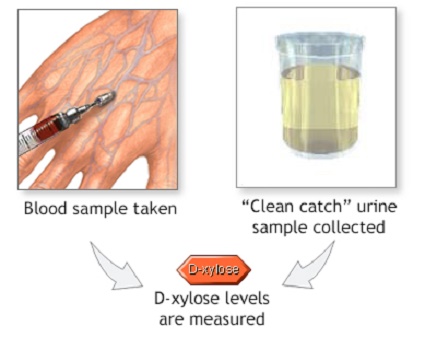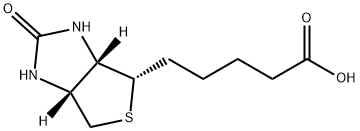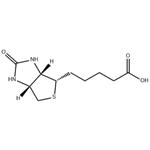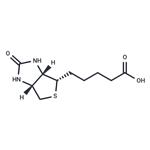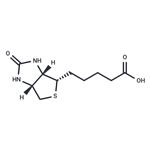D-Biotin: Application; Side effects and Benefits
Jan 8,2024
Application of D-Biotin
D-Biotin is a water-soluble enzyme cofactor that is present in trace amounts in every living cell. It binds primarily to proteins or peptides and is abundant in liver, kidney, pancreas, yeast and milk. Biotin, also known as vitamin B7, is used to treat biotin deficiency. It is used as a conditioning agent for hair and skin in medicines, dietary supplements, animal feed and cosmetics, and as a nutritional supplement and chelator in foods. It is also commonly used for hair loss, brittle nails and other conditions, but there is no good scientific evidence to support these uses. Biotin supplements may interfere with certain laboratory tests.
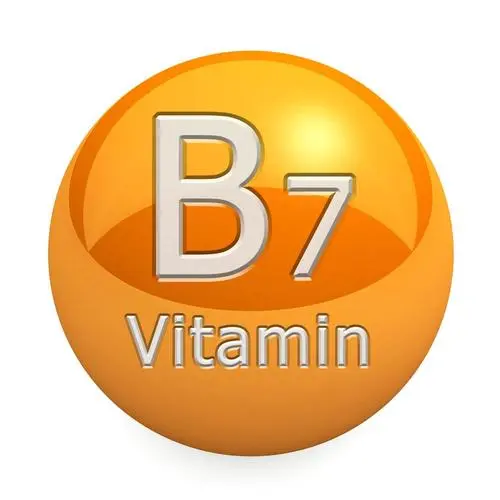
D-Biotin is a water-soluble vitamin that is indispensable for human health. Biotin deficiency can lead to stunted growth, immunodeficiency, hair loss, dermatitis and conjunctivitis. Studies have shown that biotin deficiency also causes severe colitis in mice, which can be completely reversed by supplementation.
Some recent applications of D-Biotin in SPPS: In the high-throughput biotinylation of proteins. The approach for site-specific biotinylation of proteins is useful for various applications such as protein purification and analysis. In the site-specific biotinylation of multipodal glycoclusters on a solid support. The synthesis of biotinylated glycoclusters, has important applications in glycobiology.
Side effects of D-Biotin
D-Biotin is probably safe for most people when taken by mouth. When applied to the skin: D-Biotin is probably safe for most people when applied in cosmetics containing up to 0.6% biotin. Prolonged skin contact may cause irritation. Severe allergic reactions are rare. Contact your doctor promptly if symptoms such as rash, itching/swelling (especially on the face/tongue/throat), severe dizziness, or difficulty breathing occur.
Benefits of D-Biotin
Diabetes management
Studies show that biotin supplements may help manage symptoms of diabetes. It might help reduce blood sugar levels, total cholesterol, and blood fats in some people with diabetes. But it doesn't have much effect on insulin levels. Plus, B vitamins are important for your brain and nervous system, which could help with neurological symptoms of diabetes, such as neuropathy (nerve damage). We need more research on this, though.
Skin, nail, and hair health
Biotin supplements are often marketed as having benefits for hair, skin, and fingernails. If you have a shortage of biotin in your diet, you could have thinning hair, or skin or nail problems. But there's little scientific evidence that supplements can improve hair, skin, or nail health in people who don't have a biotin deficiency.
Prenatal care
Biotin is necessary for a healthy pregnancy. Studies show that about a third of pregnant women in the U.S. have mild biotin deficiencies, but we need more research to understand why. During pregnancy, make sure to eat foods rich in biotin or talk to your doctor about taking a biotin supplement.
Nerve health
Biotin is thought to help nerves recover from damage, especially in people with progressive diseases, such as multiple sclerosis. However, recent studies don't show any long-term benefits of taking high doses of biotin for nerve health.
Foods With Biotin
Biotin is a water-soluble vitamin, which means your body can't store it like fat-soluble vitamins. Instead, you have to replace it daily. Bacteria in your gut can create biotin, though researchers aren't sure what role this plays in your overall biotin levels.
References:
[1] KATHERINE G. THOMPSON MD; Noori K M. Dietary supplements in dermatology: A review of the evidence for zinc, biotin, vitamin D, nicotinamide, and Polypodium[J]. Journal of the American Academy of Dermatology, 2021. DOI:10.1016/j.jaad.2020.04.123.
[2] JONATHAN SKUPSKY. Biotin Supplementation Ameliorates Murine Colitis by Preventing NF-κB Activation[J]. Cellular and Molecular Gastroenterology and Hepatology, 2020. DOI:10.1016/j.jcmgh.2019.11.011.
- Related articles
- Related Qustion
- Synthesis of Biotin May 24, 2022
Biotin is an organic heterobicyclic compound that consists of 2-oxohexahydro-1H-thieno[3,4-d]imidazole having a valeric acid substituent attached to the tetrahydrothiophene ring.
- What is D-biotin? Oct 10, 2019
D-biotin is the naturally occurring, biologically active form of the B vitamin biotin. It's involved in lipid, protein and carbohydrate metabolism.
Supplementation with pyridoxal 5'-phosphate monohydrate can synthesize neurotransmitters such as dopamine and serotonin, maintaining a healthy nervous system.....
Nov 4,2025Biochemical EngineeringThis test is done to help diagnose problems that prevent the small intestine from absorbing nutrients in food and evaluate the person’s ability to absorb carbohydrates in general.....
Jan 8,2024Biochemical Engineering




